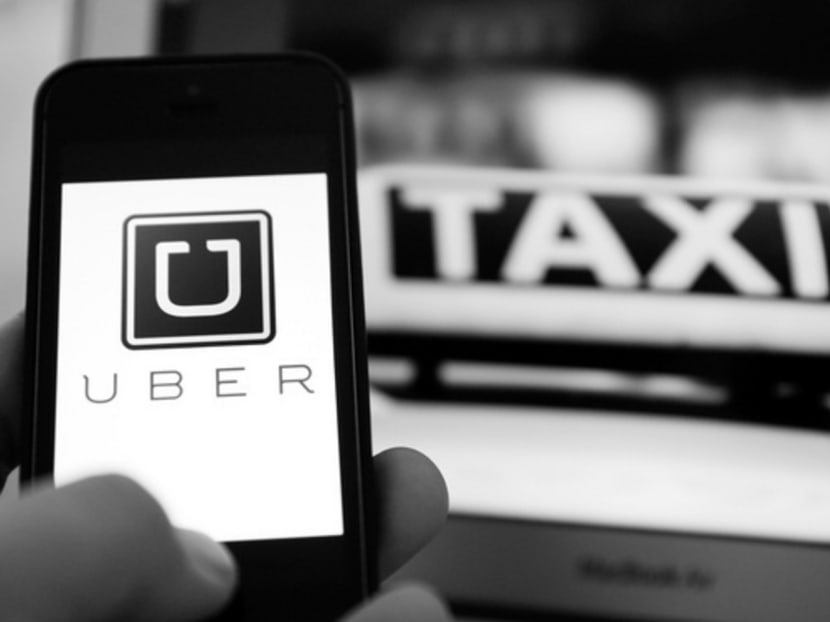Uber should not run down the messenger
Some years ago, I was feeling anxious and went to talk to a psychiatrist. After I had explained my worries and how I felt like responding, he paused for thought and asked: “Have you considered doing nothing?”

Like other start-ups, Uber’s self-image is that of a plucky disrupter that an entrenched industry is attempting to eliminate, while many outsiders see only a deep-pocketed rule-breaker. PHOTO: REUTERS
Some years ago, I was feeling anxious and went to talk to a psychiatrist. After I had explained my worries and how I felt like responding, he paused for thought and asked: “Have you considered doing nothing?”
That sound advice was brought to mind this week by the counter-productive effort of Uber, the ride-hailing network, to woo journalists at a dinner in New York. During the meal, one executive mused about how it might handle a spate of media criticism of its tactics. It might retaliate, he said, by hiring researchers to dig into “your personal lives, your families”.
I suggest that Mr Travis Kalanick, Uber’s founder, does nothing of the sort. Like analysts, investors, politicians, protesters, consumer groups and other external irritants, journalists can infuriate any company.
We do not tell the story it wants; we consort with the opposition; we wield, as Mr Stanley Baldwin, a former United Kingdom Prime Minister, said of press barons, “power without responsibility”. It cannot be helped — and will definitely not be by responding angrily and trying to administer a dose of the same medicine. Mr Emil Michael, Uber’s head of business, was venting his frustrations rather than seriously advocating a counter-intelligence unit. But even that was, as Mr Kalanick tweeted, “terrible”.
Uber is not alone in being tempted to fight fire with fire. Tactics that used to be confined to politics — rapid rebuttal, negative campaigning, media blitzes — have been adopted by companies and their public relations agencies. As it becomes easier for opponents to air their views using digital media, companies fight back faster and louder.
The model for aggressive counter-attack was Mr Bill Clinton’s 1992 presidential campaign (the conference room at Uber’s San Francisco head office is called the War Room, the title of a documentary about that campaign).
Mr Kalanick talks of Uber fighting political campaigns to expand into cities against taxi drivers’ resistance and his head of policy is Mr David Plouffe, a former adviser to President Barack Obama.
This is the textbook approach for companies facing controversy over a project. A public relations company, Edelman, advised TransCanada, a Canadian energy group, to adopt a “campaign-style approach of promote, respond and pressure” for its alternative to the Keystone XL pipeline. Documents in which it did so were obtained by Greenpeace, the campaign group.
“If left unchecked, (the pipeline’s) opponents will use every piece of information at their disposal to attack the project,” said one document. “We will work with third parties and arm them with the information they need to pressure opponents and distract them from their mission.”
The question is what “pressure” involves. Edelman said it means reviewing public records and social media to assess the “strengths and weaknesses” of groups such as the Council of Canadians, with a focus on their leadership and finances.
If that is all and not the dubious tactics discussed at the Uber dinner, it is nothing to be ashamed of. Campaign groups that express outrage at being placed in the spotlight — in this case, one denounced it as a “smear campaign” — do not hesitate to use similar tactics themselves. Those who dish it out should expect to take it.
KEEP CALM AND NEUTRALISE THE OPPOSITION
Yet, companies must be careful. Going negative, as every politician knows, can be very effective, but is also dangerous. It is particularly risky for corporations that are wealthy enough to hire all the lawyers, researchers and public relations professionals they wish. Not only will their opponents portray them as bullies, but many people will instinctively agree.
Uber is a big company — valued in its last funding round in June at US$17 billion (S$22 billion) — which was founded in only 2009 and still regards itself as small. Like other start-ups, its self-image is that of a plucky disrupter that an entrenched industry is attempting to eliminate, while many outsiders see only a deep-pocketed rule-breaker that has too little time or respect for others.
The right strategy for Uber — the one it was trying to pursue at dinner before Mr Michael discarded the script — is to remain calm and try to neutralise opposition, not to stir up more. It is perverse to be angry that other people are upset with you if you pride yourself on annoying them. Disruption means often having to say you are sorry.
Companies have many more outlets than in the past to influence perception. Once, their public relations people had no alternative but to charm and cajole a small group of journalistic insiders. Now, the Internet allows them to write the story they prefer and publish it themselves.
As Mr Michael tactlessly noted, if they do not like the reporters at the media table, they can hire their own.
Companies are often as irritated by investment analysts as by journalists. Yet, trying to crush either profession makes things worse.
Mr Lourenco Goncalves, the chief executive of mining company Cliffs Natural, appeared defensive and petty on an earnings call last month when he refused to answer a polite question from a Wells Fargo analyst whose reports he disliked.
Such grumpiness distracts from the task, which is getting out and making a case through the channels that remain open. For a technology company such as Uber, it is curiously old-fashioned to obsess about one or two critics. This is not the taxi business; nobody has a monopoly any more. THE FINANCIAL TIMES
ABOUT THE AUTHOR
John Gapper is chief business commentator and an associate editor of the Financial Times.






